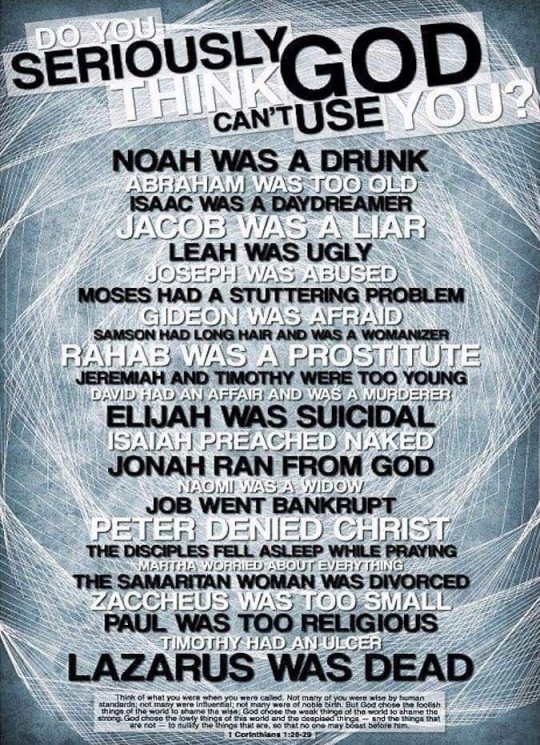#Bibletranslations
Text

#psalm 94:19#bible#christian blog#god#belief in god#faith in god#jesus#belief in jesus#faith in jesus#encouragement#biblequotes#bibletranslations#bible verses#bible truths#christian life#christian faith#christian inspiration#christian living#christians#christianity#christian motivation#christian quotes#keep the faith#make him known
114 notes
·
View notes
Text

How Should We Translate John 1.1: “the Word was God,” or “God was the Word”?
By (native Greek speaker) Eli Kittim 🎓
John 1.1:
Ἐν ἀρχῇ ἦν ὁ λόγος, καὶ ὁ λόγος ἦν πρὸς
τὸν θεόν, καὶ θεὸς ἦν ὁ λόγος.
John 1.1 is often broken down into 3 phrases:
Phrase 1: Ἐν ἀρχῇ ἦν ὁ λόγος
Phrase 2: καὶ ὁ λόγος ἦν πρὸς τὸν θεόν
Phrase 3: καὶ θεὸς ἦν ὁ λόγος.
From the outset, before they even consider the process of biblical interpretation and exegesis, textual critics and Greek scholars set out to produce a faithful *translation* of the original Greek New Testament. Bear in mind that the processes of translation and interpretation are not the same. We expect the translation committees to translate (not to interpret) the text!
Therefore, a literal and accurate translation of the Greek language should correctly translate the last phrase of Jn 1.1 as “God was the word.” In other words, the third phrase of Jn 1.1 (καὶ θεὸς ἦν ὁ λόγος) should be translated exactly as it was written in the original Greek (for emphasis), not rearranged and reassembled (in the target language) as we would wish it would be. In the original Greek, the text doesn’t actually say that “the Word was God,” as most modern translations maintain:
That’s an interpretation!
Rather, the original Greek New Testament says that “God was the Word”! So, the *interpretative* rearrangement is forcing the critical reader to read it backwards, which neglects the emphasis of the word order in the original Greek. It’s as if we were told to read Hebrew backwards, from left to right. What is more, the third phrase of John 1.1 doesn’t actually say ὁ λόγος ἦν (the word was). It says θεὸς ἦν (God was). If the text wanted to emphasize that “the word was God,” the phrase would have been: καὶ ὁ λόγος ἦν θεὸς. It would have been written as follows:
Ἐν ἀρχῇ ἦν ὁ λόγος, καὶ ὁ λόγος ἦν πρὸς
τὸν θεόν, καὶ ὁ λόγος ἦν θεὸς.
But that’s not what it says! To try to manipulate what the original Greek New Testament is actually emphasizing——by rearranging or *reinterpreting* it during the translation process——is equivalent to editing and, therefore, corrupting the “inspired” text.
Admittedly, the third phrase of Jn 1.1 is somewhat of a Gestalt configuration in which different *meanings* can arise depending on the angle from which it is viewed. One could make the *interpretative* argument that the original phrase “God was the Word” might be equivalent to or interchangeable with “the Word was God.” In other words, on an *exegetical* level, one could make the case that the phrase “the Word was God” might be the converse of “God was the Word.” I don’t deny that possibility on grammatical grounds. That is certainly worthy of exegetical consideration. But when we’re initially *translating* the text, we shouldn’t be interested in theories of exegesis. Rather, we should be entirely focused on producing a faithful translation, which precedes interpretation and subsequent theological ramifications.
In *interpreting* the third phrase of Jn 1.1, many textual scholars typically reverse the word-order of the original Greek phrase (via a grammatical rule) so that we’re forced to read the words backwards. According to this rule, we can determine the *subject* of a phrase if a noun falls into one of the following categories: a) if it’s a proper name; b) if it’s preceded by an article; or c) if it’s a personal pronoun. However, in contradistinction to this grammatical rule, θεὸς can actually be the subject that precedes the verb ἦν (here, a form of "to be"), while λόγος can be the predicate nominative. On the other hand, in order to identify θεὸς as the predicate nominative and λόγος as the subject, one has to invoke what is known as the “Subset Proposition" rule, or the "Convertible Proposition" rule. In other words, this alteration involves a complex set of esoteric grammatical assumptions and decisions which essentially turn the text upside down.
By contrast, the straightforward way of reading the text seems to be the smoothest and the most natural. Not to mention that the phrase “God was the Word” is actually a faithful translation, whereas the phrase “the Word was God” is merely an *interpretation.* I’m not arguing that the phrase “the Word was God” is a wrong interpretation. I’m arguing that it’s a wrong translation! In the critical edition, we must always let the reader know what the text ACTUALLY says, not our INTERPRETATION of what we think it might mean. That can go in the commentary section. In translating a text——if the word-order of the original Greek doesn’t make any sense——translators are allowed to rearrange the words in order for it to make sense. But this exception to the rule doesn’t apply here because the original Greek makes perfect sense! Therefore, our decision to abandon our fidelity to the lexical details and grammatical structures of the Greek New Testament makes us no better than the scribes who corrupted it.
Moreover, the decision to change the *meaning* of the text (or to *reinterpret* it) is done for obvious theological reasons. Christian translators have a theological axe to grind. In order to validate and uphold the Trinity, they want to maintain the *distinction* between God the Father (the first person of the Trinity) and the Word of God (the second person of the Trinity). Hence why they deliberately *translate* the last part of Jn 1.1 backwards. Because if they were to translate it as the author intended it, namely, that “God was the word,” it might give the wrong impression that there’s no distinction between the Father and the Word. However, the third phrase of Jn 1.1 is not necessarily making a *modalistic* theological claim that there’s no distinction between the Father and the Word. Rather, since the second phrase (καὶ ὁ λόγος ἦν πρὸς τὸν θεόν) clearly distinguished the two persons of the Trinity, the third phrase establishes their *ontological* unity by affirming that God was not simply separate from the Word, but that God himself was, in fact, the Word per se! After all, the first and second persons of the Trinity share one homoousion (essence): “I and the Father are one” (Jn 10.30)!
At any rate, this *interpretation* has become so wide spread, to such an extent that it has become a dogmatic and systematic standard, not only overriding or supplanting the original *translation* but also prompting modern translations to follow suit. It’s a case of special pleading where an *interpretation* has supplanted a *translation*!
However, there are many credible Bible translations that *translate* the last phrase of Jn 1.1 as “God was the Word”:
Coverdale Bible of 1535
In the begynnynge was the worde, and the
worde was with God, and God was ye
worde.
Smith's Literal Translation
In the beginning was the Word, and the
Word was with God, and God was the Word.
Literal Emphasis Translation
In the beginning was the Word, and the
Word was with God, and God was the Word.
Catholic Public Domain Version
In the beginning was the Word, and the
Word was with God, and God was the Word.
Lamsa Bible
THE Word was in the beginning, and that
very Word was with God, and God was that
Word.
Aramaic New Covenant: In the beginning
the Word having been and the Word having
been unto God and God having been the
Word.
Concordant Literal New Testament: In the
beginning was the word, and the word was
toward God, and God was the word.
Coptic Version of the New Testament: In
(the) beginning was the Word, and the Word
was with God, and God was the Word.
Great Bible (Cranmer 1539): In the
begynnynge was the worde, and the worde
was wyth God: and God was the worde.
New English Bible: When all things began,
the Word already was. The Word dwelt with
God, and what God was, the Word was.
Revised English Bible: In the beginning the
Word already was. The Word was in God’s
presence, and what God was, the Word
was.
Today’s English New Testament: In the
beginning was the Logos. And the Logos
was with God. And God was the Logos.
The Wyclif Translation (by John Wycliffe): In
the bigynnynge was the word and the word
was at god, and god was the word.
Latin Vulgate: in principio erat Verbum et
Verbum erat apud Deum et Deus erat
Verbum.
Vulgate translation: in the beginning was
the Word and the Word was with God and
God was the Word.
See also:
Was the Word “God” or “a god” in John 1.1?
#greektranslations#Greek linguistics#GreekPhilology#Βιβλικήμελέτη#John1v1#theWordwasGod#GodwastheWord#θεὸςἦνὁλόγος#biblicalinterpretation#ελικιτίμ#ModalisticMonarchianism#trinity#biblicalgreekgrammar#koine greek#το_μικρο_βιβλίο_της_αποκάλυψης#εκ#GreekNewTestament#ek#Bibletranslations#Bibleversions#the little book of revelation#elikittim#homoousion#john10v30#biblestudy#authorialintention#biblicalexegesis#ontologicalunity#textual criticism#theologicalbias
4 notes
·
View notes
Text
Thank you for praying for my recent trip to Serbia. I met with the three Roma Bible translation teams I consult, and a new team starting on a Bible translation for Roma in Albania, and taught them a course on “Biblical Exegesis”. Exegesis is the process of studying and discovering the meaning of a text, in this case the meaning of the original Greek text of the New Testament, and communicating…

View On WordPress
2 notes
·
View notes
Text

“For the Lord is good. His unfailing love continues forever, and his faithfulness continues to each generation.”
—Psalm 100:5 (NLT)
“When you're not okay, God is still good. God is good even if your heart hurts, even if your whole world seems to be breaking. God's goodness doesn't depend on your situation. You can continue trusting Him despite your circumstance. He is still good even when life is not.”
—Joena San Diego
Amen! 🙌
#psalm 100:5#god is good#god is good all the time#joena san diego#bible#christian blog#god#belief in god#faith in god#biblequotes#bibletranslations#encouragement#jesus#belief in jesus#faith in jesus#christianity#christian life#christian quotes#bible verses#bible truths#bible scripture#christians#christian inspiration#christian faith#christian living#christian motivation#keep the faith#make him known
133 notes
·
View notes
Text

#deuteronomy 31:8#bible#christian blog#god#belief in god#faith in god#jesus#belief in jesus#faith in jesus#encouragement#biblequotes#bibletranslations
69 notes
·
View notes
Text

“Then you will call on Me and you will come and pray to Me, and I will hear [your voice] and I will listen to you. Then [with a deep longing] you will seek Me and require Me [as a vital necessity] and [you will] find Me when you search for Me with all your heart.” —Jeremiah 29:12-13 (AMP)
#jeremiah 29:13#bible#christian blog#god#belief in god#faith in god#christianity#jesus#belief in jesus#faith in jesus#bible verses#bible truths#biblequotes#bible scripture#bibletranslations#christian life#christian inspiration#christians#christian living#christian faith#christian motivation#christian quotes#christian encouragement#encouragement#keep the faith#make him known#jeremiah 29:12-13
68 notes
·
View notes
Text
“I pray that out of his glorious riches he may strengthen you with power through his Spirit in your inner being.” —Ephesians 3:16 (NIV)
“Good morning! May God be... above you to bless you; below you to support you; before you to guide you; behind you to protect you; beside you to comfort you; and inside you to give you strength and joy.” Amen! 🙏🙌
(Via)
#ephesians 3:16#bible#christian blog#god#belief in god#faith in god#jesus#belief in jesus#faith in jesus#encouragement#christian encouragement#biblequotes#bibletranslations#bible verses#bible truths#bible scriptures#bible quotes#christian life#christian faith#christian inspirational quotes#christian inspiration#christian living#christian motivation#christian quotes#keep the faith#make him known
24 notes
·
View notes
Text

Amen. 🙏
#bible#christian blog#god#belief in god#faith in god#jesus#belief in jesus#faith in jesus#encouragement#biblequotes#bibletranslations#bible verses#bible truths#bible quotes#christian life#christian faith#christian living#christians#christianity#christian inspiration#christian encouragement#christian quotes#inspirational studio angelina#inspirational#keep the faith#make him known#psalm 23:6
37 notes
·
View notes
Text

#john 8:12#bible#christian blog#god#belief in god#faith in god#jesus#belief in jesus#faith in jesus#encouragement#biblequotes#bibletranslations#christian life#christian living#christian inspirational quotes#christian inspiration#christians#christianity#christian motivation#christian quotes#keep the faith#make him known
49 notes
·
View notes
Text

“Yes, the Lord Almighty has decided what he will do. Nobody can change it. He is ready to show his power. Nobody can stop it.”
—Isaiah 14:27 (EASY)
“At the right time, I, the Lord, will make it happen.”
—Isaiah 60:22 (NLT)
“We know that God works to help those people who love him. He uses everything that happens to them to bring something good. He does this for those people that he has chosen to serve him.”
—Romans 8:28 (EASY)
It might not be looking good at the moment. There might be storms. Your boat might be sinking.
Through it all, God is still working. This isn't the end of your story by a long shot. Whatever is happening now will become your testimony of victory. You are more than a conqueror through Christ Jesus who loves you (Romans 8:37).
God's always has a plan and nothing on Heaven on Earth and no power of the enemy can stop God's plan for your life. Because God is GOD. He created everything and everybody, including the enemy. So when God decides, big things happen at the time of His choosing.
Friend, you're in safe hands. GOD has got this and it's all going to work out okay. Amen! 🙏🕊️🙌
#isaiah 14:27#isaiah 60:22#romans 8:28#romans 8:37#bible#christian blog#god#belief in god#faith in god#jesus#belief in jesus#faith in jesus#biblequotes#bible verses#bible truths#encouragement#bibletranslations#christian life#christian faith#christian living#christians#christian inspiration#christianity#christian quotes#christian motivation#god has a plan for your life#god has a great plan for your life#keep the faith#make him known
42 notes
·
View notes
Text

Amen! 🙏🕊️🙌
#2 corinthians 5:7#bible#christian blog#god#belief in god#faith in god#jesus#belief in jesus#faith in jesus#bible verses#bible truths#christian faith#christian life#encouragement#biblequotes#bibletranslations#christian living#christian inspirational quotes#bible scripture#bible quotes#keep the faith#make him known#we walk by faith#daily inspiration
23 notes
·
View notes
Text

“Do you seriously God think can't use you?
Noah was a drunk
Abraham was too old
Isaac was a daydreamer
Jacob was a liar
Leah was ugly
Joseph was abused
Moses had a stuttering problem
Gideon was afraid
Samson had long hair and was a womanizer
Rahab was a prostitute
Jeremiah and Timothy were too young
David had an affair and was a murderer
Elijah was suicidal
Isaiah preached naked
Jonah ran from God
Naomi was a widow
Job went bankrupt
Peter denied Christ
The disciples fell asleep while praying
Martha worried about everything The Samaritan woman was divorced
Zaccheus was too small
Paul was too religious
Timothy had an ulcer
Lazarus was dead
God doesn't choose perfect people (because there aren't any on Earth). God chooses ordinary, flawed, imperfect people and helps them to do extraordinary things (look at the list above!) God can use you! Friend, God will give you the wisdom, power and strength to do anything He asks you to do. In Christ you have everything you need (Phil 4:19,23, Isa 40:29-31). Amen! 🙌
“Brothers and sisters, think of what you were when you were called. Not many of you were wise by human standards; not many were influential; not many were of noble birth. But God chose the foolish things of the world to shame the wise; God chose the weak things of the world to shame the strong. God chose the lowly things of this world and the despised things—and the things that are not—to nullify the things that are, so that no one may boast before him. It is because of him that you are in Christ Jesus, who has become for us wisdom from God—that is, our righteousness, holiness and redemption.” —1 Corinthians 1:26-30 (NIV)
#bible#christian blog#god#belief in god#faith in god#encouragement#biblequotes#bibletranslations#jesus#belief in jesus#faith in jesus#bible study#bible verses#bible truths#god can use you#bible quotes#1 corinthians 1:26-30#christian life#christian faith#christian living#christian inspiration#christianity#christians#christian motivation#christian quotes#bible scripture#keep the faith#make him known
45 notes
·
View notes
Text

“If you are faithful in little things, you will be faithful in large ones. But if you are dishonest in little things, you won’t be honest with greater responsibilities.” —Luke 16:10 (NLT)
“This verse is very realistic. If we can satisfy God in a small thing, then we will satisfy Him in a great matter. God observes the depths of man’s heart.
Faithfulness in small things, including matters involving money, is an essential part of what reveals the truth about our authenticity as disciples.
What we do with a little reveals a great deal about what we will do with much.
Father God, help me be a good steward with your blessings. Keep my heart pure in matters big and small. May my words, actions, and thoughts all reflect your holy character and your freely-given grace. In Jesus' name. Amen.🙏😌💞”
From: “Unconditional Love” (FB)
#luke 16:10#bible#christian blog#god#belief in god#faith in god#biblequotes#bible verses#bible truths#christian encouragement#christian faith#christian inspiration#bible scripture#encouragement#jesus#belief in jesus#faith in jesus#bibletranslations#christian quotes#christian life#christian living#christians#christian motivation#bible study#prayer#christian prayer#keep the faith#make him known
45 notes
·
View notes
Text

“Even though I walk through the darkest valley, I will fear no evil, for you are with me” (Psalm 23:4 NIV).
“God’s Presence: Your Anchor through Any Storm” By Rick Warren:
“No one gets to live a life without setbacks. All of us will face storms from time to time.
The real issue is how we respond. What happens next? Do setbacks dominate you? Do you stop trying and give up?
If we’re not careful, setbacks will lead us toward unhelpful decisions:
Drifting from our goals. We hear the little voice inside that asks, “What’s the use of trying?” Then we stop striving for what God has clearly called us to do.
Discarding what we value. Sometimes, after a period of intense pain, our priorities change—we let go of what once mattered greatly to us.
Despairing about our future. We figure we’re doomed, we’re finished, and it’s all over.
As a pastor now for more than 40 years, I’ve watched many people react to crises in one of those three ways. I’ve discovered that the true test of faith is not how high you jump when you’re singing praises to God, but how straight you walk when you’re going through the valley of the shadow of death.
You’ll always drift in a storm without the right anchor. And only one anchor will really do.
One of the Bible’s most famous passages says it like this: “Even though I walk through the darkest valley, I will fear no evil, for you are with me” (Psalm 23:4 NIV).
God’s presence is the greatest anchor in any situation.
When you’re feeling hopeless, remember that God hasn’t left you. Make him your rock-solid anchor. No matter how dark your valley, you’ve never been closer to God than you are at this exact moment.
When I make that statement to people as they’re going through setbacks, they often tell me: “Well, I don’t feel his presence.”
But it really has nothing to do with how you feel. The Bible says God is there in your darkest valley. That’s reality—whether you believe it or not.
The Bible tells us, “I’m absolutely convinced that nothing—nothing living or dead, angelic or demonic, today or tomorrow, high or low, thinkable or unthinkable—absolutely nothing can get between us and God’s love because of the way that Jesus our Master has embraced us” (Romans 8:38-39 The Message).
No matter what you’re going through, God and his love are right there with you.
That truth offers stability in any storm.
Talk it over:
What setbacks in your life have made you doubt God’s presence?
When you look at the three ways setbacks can lead us to losing our way, which have you experienced? How did the loss impact you?
How does recognizing God’s presence in the midst of setbacks help you get through those difficult times?”
#bible#christian blog#god#belief in god#faith in god#jesus#belief in jesus#faith in jesus#biblequotes#bible scripture#bible verses#bible truths#christian devotionals#bibletranslations#rick warren#pastor rick's daily hope#christian life#christianity#christian inspiration#christians#christian living#christian faith#encouragement#keep the faith#make him known
37 notes
·
View notes
Text

“Then David praised the Lord in the presence of the whole assembly:
“O Lord, the God of our ancestor Israel, may you be praised forever and ever! Yours, O Lord, is the greatness, the power, the glory, the victory, and the majesty. Everything in the heavens and on earth is yours, O Lord, and this is your kingdom. We adore you as the one who is over all things. Wealth and honor come from you alone, for you rule over everything. Power and might are in your hand, and at your discretion people are made great and given strength.
“O our God, we thank you and praise your glorious name! But who am I, and who are my people, that we could give anything to you? Everything we have has come from you, and we give you only what you first gave us! We are here for only a moment, visitors and strangers in the land as our ancestors were before us. Our days on earth are like a passing shadow, gone so soon without a trace.
“O Lord our God, even this material we have gathered to build a Temple to honor your holy name comes from you! It all belongs to you! I know, my God, that you examine our hearts and rejoice when you find integrity there. You know I have done all this with good motives, and I have watched your people offer their gifts willingly and joyously.
“O Lord, the God of our ancestors Abraham, Isaac, and Israel, make your people always want to obey you. See to it that their love for you never changes. Give my son Solomon the wholehearted desire to obey all your commands, laws, and decrees, and to do everything necessary to build this Temple, for which I have made these preparations.”
Then David said to the whole assembly, “Give praise to the Lord your God!” And the entire assembly praised the Lord, the God of their ancestors, and they bowed low and knelt before the Lord and the king.”
—1 Chronicles 29:10-20 (NLT)
Amen! Praise the Lord! 🙌
#1 chronicles 29:10-20#bible#christian blog#god#belief in god#faith in god#jesus#belief in jesus#faith in jesus#praises#praise the lord#bible verses#bible truths#bible scripture#bible quotes#encouragement#bibletranslations#christian life#christian faith#christian inspiration#christians#christianity#christian living#christian motivation#christian quotes#praise god#praise and worship#god created everything#keep the faith#make him known
20 notes
·
View notes
Text

Lovely picture. Amen! 🙌
#bible#christian blog#god#belief in god#faith in god#encouragement#jesus#belief in jesus#faith in jesus#philippians 4:7#biblequotes#bibletranslations#bible verses#bible truths#bible scriptures#bible quotes#christian life#christian faith#christian inspirational quotes#christian inspiration#christian living#christianity#christian motivation#christian quotes#keep the faith#make him known
18 notes
·
View notes